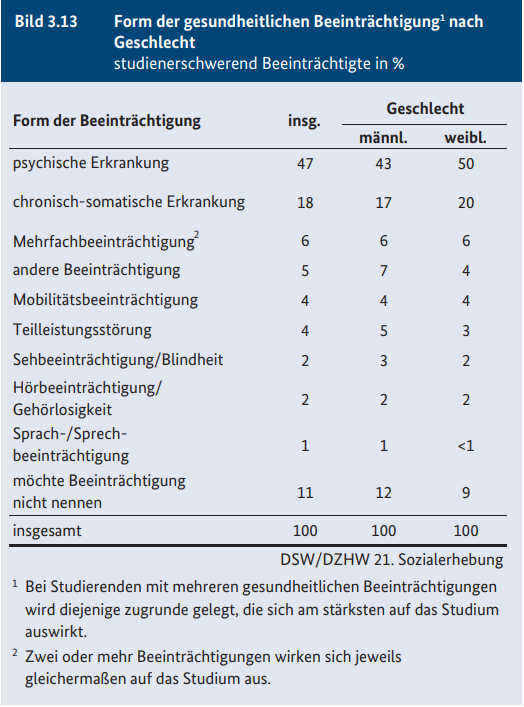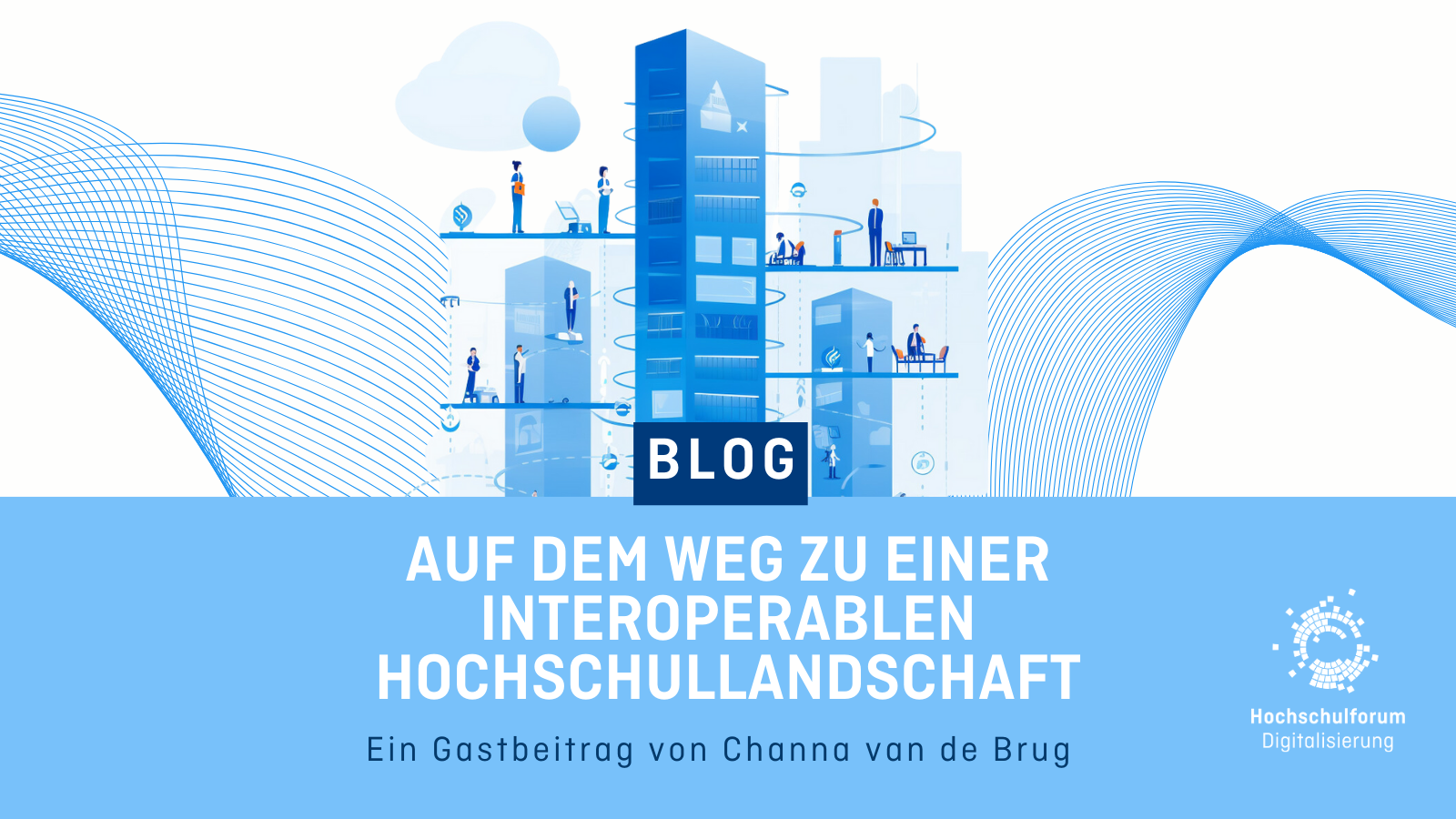Barrierefreiheit und inklusive Digitalisierung
Barrierefreiheit und inklusive Digitalisierung
01.09.20
Die Corona-Krise hat die Hochschulen unvermittelt getroffen. Lehrende und Studierende finden sich auf einmal in virtuellen Lernräumen wieder. Von dieser Krise sind besonders die Studierenden betroffen, die bereits vor der Pandemie benachteiligt waren. Studierende mit gesundheitlichen Beeinträchtigungen gehören oft zur Risikogruppe der durch Corona besonders gefährdeten Menschen. Sie müssen ihren Alltag neu organisieren, wobei Assistenz und Pflegekräfte nicht im gewohnten Umfang verfügbar sind. Und schließlich sollen sie noch unter den veränderten Bedingungen möglichst erfolgreich studieren.
Der Ableismus des Hochschulsektors zeigt sich in dieser Krisensituation besonders deutlich. Studierende sollen mit Inhalten arbeiten, die sie nicht nutzen können, weil sie nicht barrierefrei sind. Lehrende mussten schnell auf Onlinelehre ausweichen und führen ihre Lehrangebote oft als synchrone virtuelle Veranstaltungen durch. Diese Form ist der Präsenzlehre entlehnt. Sie passt nicht für alle Lehrangebote. Außerdem benachteiligt synchrone Digitallehre einige Studierende, insbesondere Studierende mit gesundheitlichen Beeinträchtigungen.
Mit überschaubarem Aufwand können multi-modale Lösungen gestaltet werden, die Barrierefreiheit sicherstellen und von allen Studierenden genutzt werden können. In mehreren Blogbeiträgen zeigen wir auf, wie das geht, warum das wichtig ist und weshalb alle Studierenden davon profitieren.
Studierende mit gesundheitlichen Beeinträchtigungen in Deutschland
Es gibt in Deutschland kaum Daten über Studierende mit gesundheitlichen Beeinträchtigungen. Eine der wenigen Datenquellen ist die Sozialerhebung, die das DZHW regelmäßig im Auftrag des Bundesministerium für Bildung und Forschung (BMBF) und des Deutschen Studentenwerks (DSW) durchführt. In der aktuellen Sozialerhebung haben dabei 11% der befragten Studierenden angegeben, dass bei ihnen eine gesundheitliche Beeinträchtigung vorliegt, die sich studienerschwerend auswirkt. Das bedeutet, dass von aktuell 2.892.000 Studierenden rund 318.000 in ihrem Studium behindert werden, weil sie gesundheitlich beeinträchtigt sind.
Von diesen Studierenden geben 29% an, dass sie mehr als eine studienerschwerende Beeinträchtigung haben. Dabei ist insbesondere der Anteil der Studierenden mit psychischen Erkrankungen in den vergangenen Jahren deutlich gestiegen. Aber auch andere Formen der gesundheitlichen Beeinträchtigung wirken sich studienerschwerend aus, wie die folgende Grafik zeigt:
Auskunft über die erlebte Studiensituation von Studierenden mit gesundheitlichen Beeinträchtigungen gibt die Studie “beeinträchtigt studieren – best2”. Im Bereich der Studienorganisation sowie der Lehre und des Lernens geben 29% der befragten Studierenden an, dass sie aufgrund nicht barrierefreier Lehrmaterialien Schwierigkeiten im Studium haben. Und jeweils 24% der Studierenden sagen, dass nicht barrierefreies E-Learning Probleme macht und technische Hilfsmittel fehlen.
Was heißt eigentlich Barrierefreiheit?
Der Begriff der Barrierefreiheit ist in Deutschland gesetzlich klar definiert. Im § 4 BGG steht:
Barrierefrei sind bauliche und sonstige Anlagen, Verkehrsmittel, technische Gebrauchsgegenstände, Systeme der Informationsverarbeitung, akustische und visuelle Informationsquellen und Kommunikationseinrichtungen sowie andere gestaltete Lebensbereiche, wenn sie für Menschen mit Behinderungen in der allgemein üblichen Weise, ohne besondere Erschwernis und grundsätzlich ohne fremde Hilfe auffindbar, zugänglich und nutzbar sind. Hierbei ist die Nutzung behinderungsbedingt notwendiger Hilfsmittel zulässig.
Auf ein paar Aspekte möchte ich hier näher eingehen:
- „in der allgemein üblichen Weise“: Dies bedeutet, dass es für Menschen mit Behinderung keine Spezialversion oder ähnliches geben soll. In den Anfängen des World Wide Webs gab es “Nur-Text-Versionen” von Webseiten, die für sehbeeinträchtigte Nutzer*innen gedacht waren. Das hat aber nichts mit Barrierefreiheit zu tun. Damit ein Webangebot barrierefrei ist, muss es in der allgemein üblichen Weise für alle Nutzer*innen zugänglich und nutzbar sein.
- „ohne besondere Erschwernis“: Der Zugang soll auch für Menschen mit Behinderung problemlos möglich sein. D.h. sie müssen sich nirgendwo anmelden oder registrieren, um auf ein Angebot zugreifen zu können.
- „grundsätzlich ohne fremde Hilfe“: Menschen mit Behinderung brauchen für die Nutzung des Angebots keine Unterstützung durch Dritte, sondern können sich selbstständig in einem Onlineangebot zurecht finden und es komplett bedienen und nutzen.
- „Nutzung behinderungsbedingt notwendiger Hilfsmittel“: Eine barrierefreie Gestaltung und die Nutzung von technischen Hilfsmitteln wie Assistiven Technologien ergänzen sich. Viele Menschen können nur mit einer Brille richtig scharf sehen. Hier ist die Brille das technische Hilfsmittel. Menschen, die nicht sehen können, nutzen technische Hilfsmittel wie eine Braillezeile und ein Bildschirmleseprogramm, um Webseiten zu lesen. Eine barrierefreie Gestaltung unterstützt die Nutzung von behinderungsbedingt notwendigen Hilfsmitteln.
Was ist eine Behinderung?
Darüber kann lange und ausführlich diskutiert werden – und genau das machen z.B. Betroffene und Wissenschaftler*innen im Bereich der Disability Studies. Ich möchte hier auf den Artikel 1 der UN-Behindertenrechtskonvention verweisen, dort steht:
Zu den Menschen mit Behinderungen zählen Menschen, die langfristige körperliche, seelische, geistige oder Sinnesbeeinträchtigungen haben, welche sie in Wechselwirkung mit verschiedenen Barrieren an der vollen, wirksamen und gleichberechtigten Teilhabe an der Gesellschaft hindern können.
Eine Behinderung liegt nicht in der einzelnen Person, sondern entsteht aus der Wechselwirkung zwischen Beeinträchtigungen und verschiedenen Barrieren in der Umwelt und Gesellschaft. Das ist das soziale Modell von Behinderung:
![Wie kann Barrierefreiheit sichergestellt werden? Bild: [http://ddsg.org.uk/taxi/social-model.html The social model] Das soziale Modell von Behinderung](/sites/default/files/images/blog/4230949_orig.gif)
Das soziale Modell von Behinderung
Das soziale Modell von Behinderung unterscheidet zwischen einer Beeinträchtigung und einer Behinderung. Die einzelne Person kann eine gesundheitliche Beeinträchtigung haben. In der Gesellschaft gibt es unterschiedlichste Barrieren:
- negative Einstellungen, wie zum Beispiel Vorurteile, Stereotypen oder Diskriminierungen
- nicht barrierefreie gestaltete Umwelt, wie Gebäude, Services und Dienstleistungen, Sprache und Kommunikation
- Organisationen mit wenig flexiblen Verfahren und Praktiken
Durch diese Barrieren in der Gesellschaft wird aus einer individuellen Beeinträchtigung eine Behinderung. Das Problem ist aber nicht die individuelle Person mit ihrer Beeinträchtigung, sondern es sind die Barrieren in der Gesellschaft, die wir beseitigen müssen. Deshalb ist auch die Barrierefreiheit so wichtig. Barrierefreie Angebote ermöglichen Menschen mit Beeinträchtigung die eigenständige Nutzung von Informationsquellen und Kommunikationseinrichtungen eigenständig nutzen können. Dadurch verhindert Barrierefreiheit die Entstehung einer Behinderung.
Was bedeutet das alles für die digitale Lehre?
Zunächst einmal bedeutet es, dass Sie sehr wahrscheinlich Studierende mit gesundheitlichen Beeinträchtigungen haben, die auf eine barrierefreie Gestaltung der (digitalen) Lehre angewiesen sind. Daher sollten alle Inhalte und Angebote digitialer Lehre barrierefrei gestaltet werden. Vieles davon geht mit der Software, die sowieso für die Erstellung von Dokumenten und anderen Inhalten genutzt wird. Wie das geht und worauf dabei geachtet werden muss, zeige ich in den folgenden Blogbeiträgen.


![Welche Beeinträchtigungen wirken sich studienerschwerend aus? Bild: [http://www.sozialerhebung.de/download/21/Soz21_hauptbericht.pdf 21. Sozialerhebung S. 37] Studierende mit gesundheitlichen Beeinträchtigungen in Deutschland](/sites/default/files/images/blog/Sozialerhebung%20Beeintr%C3%A4chtigungen.PNG)
 Channa van der Brug
Channa van der Brug 
Und wie werden jetzt digitale Dokumente konkret zum Beispiel für Blinde erstellt?
Das Problem ist, dass nicht jede Software standardisiert barrierefrei Dokumente z.B. für Blinde erstellt, da diese entweder zu viel, zu wenige oder nicht nachvollziehbare Inhalte generiert.
TAB in Formularen, Tabellen, unübersichtliche Dokumentenstrukturen, nicht beschriftete graf. Inhalte usw. sind die üblichen Probleme.
Freundliche Grüße
aus dem Berufsförderungswerk für Blind und Sehbehinderte in Halle